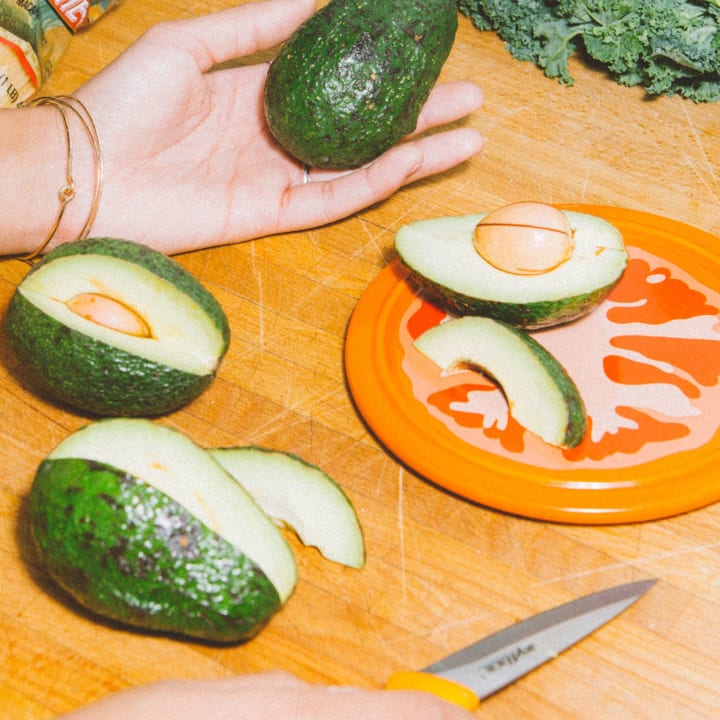Best Oils for Heart Health
Add more monos to the diet while cutting back on polys when using the best oils for heart health.

Over the last two decades, Americans have sharply increased their intake of oils high in polyunsaturated fat–largely due to their "good guy" image in preventing heart disease. But, some heart experts now say we've been pinning our longevity hopes on the wrong fat.
Recent research suggests that monounsaturated fats, such as olive oil, may have more benefits than polys in reducing cholesterol and lowering the risk of heart disease.
This, coupled with the fact that people in Mediterranean countries, longtime fans of olive oil, have a lower rate of heart disease, is prompting a new dietary strategy against heart disease. Add more monos to the diet while cutting back on polys when using the best oils for heart health.
What Are Monounsaturated And Polyunsaturated Fats?

Monos and polys, as they're casually called among dieticians, are both kinds of healthy, naturally-occurring fats in the food we eat. Unlike saturated and trans fats, they aren't processed or exposed to heat. They also don't clog arteries, making them the best oils for heart health.
Monounsaturated fats are most commonly found in liquid oils like olive oil, canola oil, and peanut oil. Using these oils instead of butter can help you bolster the amount of monounsaturated fat in your diet. Avocados also have high levels of this kind of fat.
Polyunsaturated fats, on the other hand, tend to be found in oils as well as fish, meats, and certain veggies. Good sources of polyunsaturated fats include salmon, avocado, soybeans and flaxseeds. As a result, flax oil is also a great source of polyunsaturated fats.
Why Do People Love Polyunsaturated Fats?

It's worth noting that monos shouldn't replace polys completely. For one thing, polys serve as a source of prostaglandins–body chemicals involved in a variety of vital functions, such as blood circulation.
Polyunsaturated fats also include a number of fatty acids that you may have heard of, including Omega-3 fatty acids. These fatty acids have been linked to better cognitive abilities, happier moods, better skin elasticity, as well as a slew of anti-aging perks.
Polyunsaturated fats have, in recent years, also been linked to a reduced risk of Type 2 Diabetes. Additionally, people who eat lots of polys tend to have low blood pressure.
Why Do People Love Monounsaturated Fats?

Monounsaturated fats definitely do have a lot of good qualities on their own, other than just being a great oil for heart health. They reduce inflammation, have been linked to lower rates of certain types of cancer, and also have been noted to help lower insulin spikes. As a result, eating a good deal of monounsaturated fats can help prevent sugar highs and diabetic symptoms.
The Potential Risks Of Too Many Polys

Polyunsaturated fats are definitely in, especially among health-conscious dieters.
Some scientists, concerned about the long-term safety of consuming too much polyunsaturated fat, are urging that we restrict it to 5 to 10 percent of total calories, keeping saturated fat under 10 percent and raising monos to between 10 and 15 percent. (The American Heart Association guidelines hold to a 10-10-10 ratio for the three fat varieties.)
One of the key proponents of the dietary switch is Scott Grundy, M.D., a leading cholesterol researcher at the University of Texas Health Science Center in Dallas.
It was Grundy and San Diego Colleagues who found that while polys effectively reduce cholesterol when replacing saturated fats in the diet, they also lower "good" HDL cholesterol-the prime protector of heart Vessels. The same research team found that oils high in monos, like olive oil, reduce total cholesterol without lowering HDL.
Another strike against polys comes from reports that at high levels they may promote tumors in lab animals as well as suppress the immune system. However, it's not totally certain if this is an "across the board" issue, or if it's just a select handful of specific fats.
How and why this happens isn't clear, but some scientists think that polys play a role in generating free radicals-which are linked to cancer and rapid aging.
And there are those who think the case against polys has been overstated. Specifically, some researchers point out that there were problems with the early studies linking polys and cancer. Moreover, according to Nancy Ernst, R.D., nutrition coordinator at the National Heart, Lung and Blood Institute, no one should eliminate polys and Substitute monos, because the body requires a variety of fats.
The Benefits Of Boosting Monos

Potentially strengthening the drive to add more apparently problem-free monos while cutting back on polys is another study, which linked olive oil to benefits in two other heart disease-related areas: diabetes and blood pressure.
In a recent survey by the Italian National Research Council of 4,903 men and women 20 to 59 years of age, those who consumed more olive oil than saturated fats had not only significantly lower cholesterol levels, but lower blood pressure. They also had more balanced glucose levels important for controlling diabetes.
"Given that there is no known population which consumes large amounts of polyunsaturates to attest to their long-term safety, and since high levels of polys lower beneficial HDL, I think that reducing polyunsaturated fats is a prudent step," says Grundy.
The Big Exception

There is one exception, and that deals with those with advanced heart disease. In a recent Study, David H. Blankenhorn, M.D., director of the Atherosclerosis Research Institute at the University of Southern California, found that tipping the fat balance toward monos didn't really carry an advantage over polys when it came to the risk of developing new coronary narrowing.
The only thing that made a difference was a stringent overall fat cutback, to 23 percent of calories.
The Current News On Reducing Cholesterol

Still, says Grundy, on the basis of centuries of use, increasing the intake of monos rather than cutting overall fat intake is a viable option for those trying to lower cholesterol. Not to mention, it's also the most realistic, as most people find sticking to very low fat eating difficult, unpalatable and unsatisfying.
The bottom line is that you need both mono and polyunsaturate, fats in your diet. If you're not feeling well, or if you have high cholesterol, adding more oils for heart health in your diet is a smart move. (But, just ask your doctor, first!)
About the Creator
Rowan Marley
Rowan Marley is a 20-year-old sports enthusiast who hails from Brooklyn. When he's not hitting up a local Zumba class, he's drinking organic smoothies. That's just how he rolls.






Comments
There are no comments for this story
Be the first to respond and start the conversation.